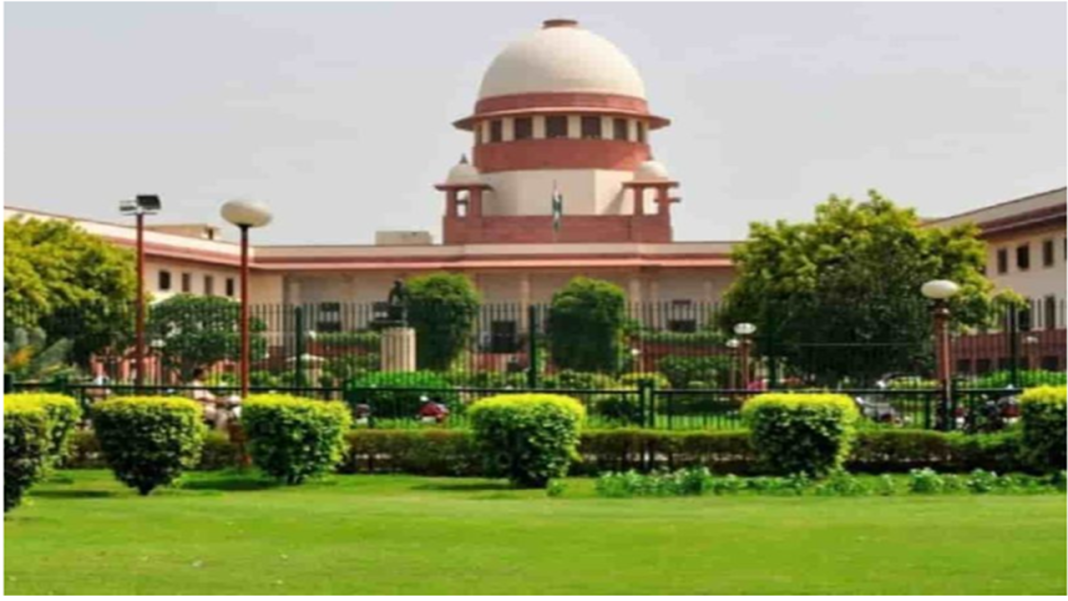The Supreme Court on Friday issued summons returnable in three weeks to a woman who had fled the United States with her 5-year-old daughter from her estranged husband, a US citizen, who has moved a habeas corpus petition for custody of the daughter.
The woman is acting in violation of multiple orders of the courts in the United States of America, the husband’s petition said. When the matter was called before it, the bench of Justice B.R. Gavai, Justice J.B. Pardiwala and Justice Sandeep Mehta raised objections on the inappropriate use of the Apex Court’s writ jurisdiction in “a custody matter.” The bench even said it was inclined to dismiss it with cost as it seemed violative of the fundamental principles and purpose of the writ of habeas corpus.
The petitioner was represented by Senior Advocate Mukul Rohatgi. Initially when the matter was called, Rohatgi was on his legs in another matter. During this time, Justice Gavai told the counsel present on behalf of Rohatgi that dismissal was inevitable and wondered how can there be a habeas corpus in a custody matter. “You decide. If you argue now, we will pass an order. If we dismiss it, we will dismiss it without cost. But if we dismiss it in the presence of Rohatgi, we will dismiss at the cost of Rs 10 lakh, commensurate with his stature,” observed Justice Gavai.
Rohatgi arrived in the nick of time and salvaged the situation. He elaborated the peculiar nature of facts, presenting the references from the Apex Court’s earlier judgments in cases on the same subject, and where such writ was allowed in the past. He highlighted the necessity and compulsion of the petitioner/father in presenting this petition.
The petitioner/father is a US citizen residing there and working in the IT industry. The mother, a medical doctor by profession, is a US Greencard holder and employed in the US. The child is a US citizen by birth. When the rift began between the parents, the woman invoked the jurisdiction of US courts to settle marital matters. The US courts granted joint parenting and ordered not to take the child outside the jurisdiction of the courts of the US. But some one-and-a-half years ago, the mother brought the child to India in violation of the US court’s orders.
The woman then filed a divorce petition in Jamshedpur, India, while the man filed a petition for custody of the child under the provisions of the Guardianship Act of India. Both petitions failed on the key point of law of citizenship and the jurisdiction of Indian courts on the parties.
Justice Pardiwala asked Rohatgi why should Indian courts entertain this petition? Rohatgi brought to the notice of the Court that the provisions of Section 9 of the Guardianship Act bars its applicability to this matter as neither the child nor the father is a citizen of India. Further, the man, being a US citizen, has no other remedy left in India and will be rendered remediless.
As the Supreme Court continued to inquire to its satisfaction, it asked Rohatgi to assist the court on various facets of law and the factual circumstances of this peculiar case. Rohatgi said that if the woman chooses to go back to the US, she will be subject to the laws of US courts as she is in India in violation of the orders of US courts; then, it will be for US courts to decide on further course of action. However, if she chooses to not go back, the father of child will have no remedy.
During the course of the hearing, the judgments passed by Apex Court in similar cases, Lahari Sukhamuri Vs Sobhan Kodali, SLP(Civil) No(s). 15892-15893 of 2018 and Nithya Anand Raghavan V State of NCT of Delhi, Criminal Appeal No.972 of 2017 (Arising out of SLP (Crl.) No.5751 of 2016) Para 48, were also quoted and referred to.
Justice Pardiwala elaborated the stand of the Apex Court in above stated judgments as the core objective of allowing these petitions was: “We took the view to allow habeas corpus in the view that the future of the child was not safe. Not well protected.” He clarified that if the Supreme Court of India allows this instant petition, the Court has to prima facie take the view that the custody of the child with the mother is illegal?
Justice Pardiwala, while allowing the man’s petition, closed the hearing with the core issue. “If the Guardianship Act does not apply, and we do not entertain your SLP, how will the father enforce the orders of US courts?”, and allowed three weeks’ time to make further submissions, and for summons to be issued towards the woman, returnable in same duration.


